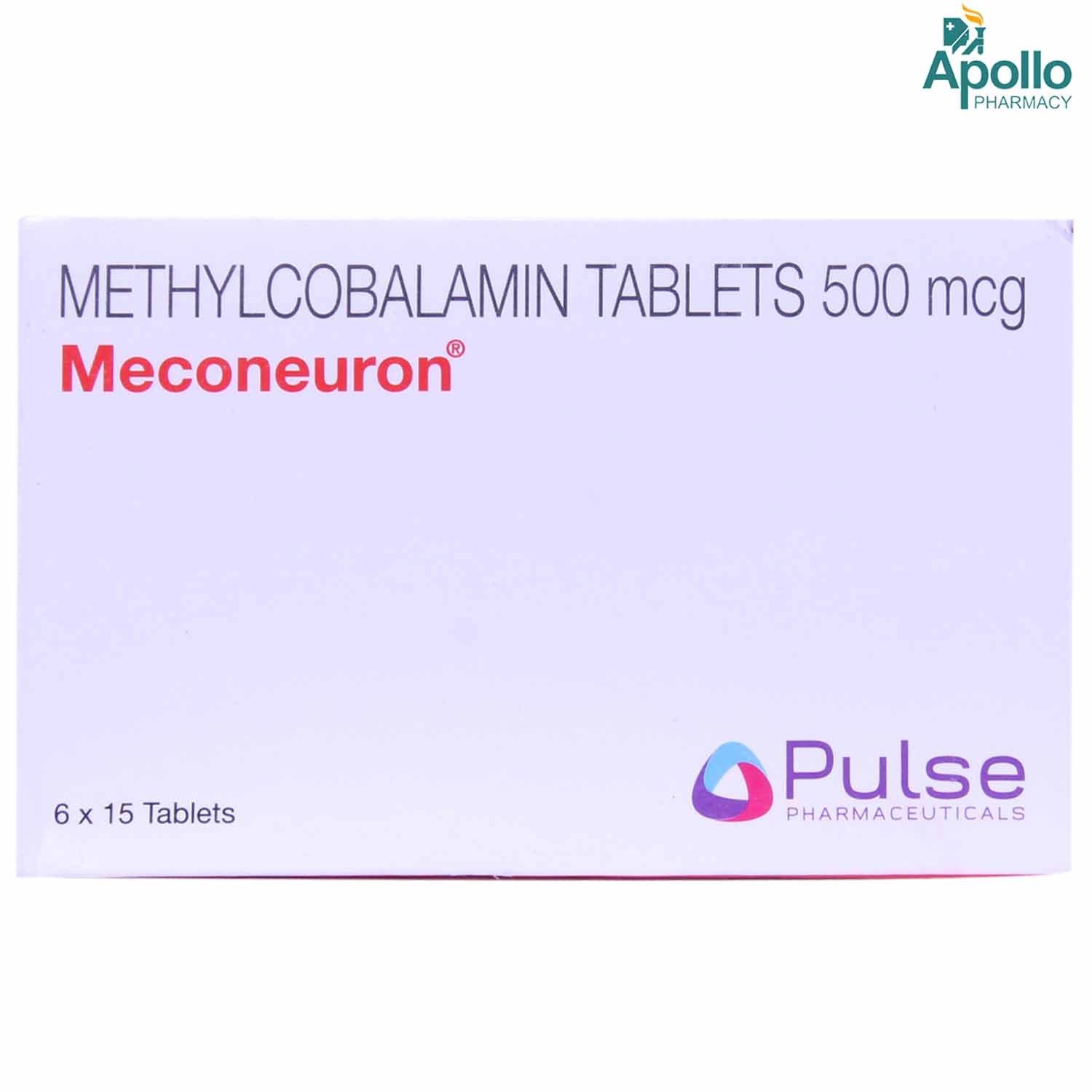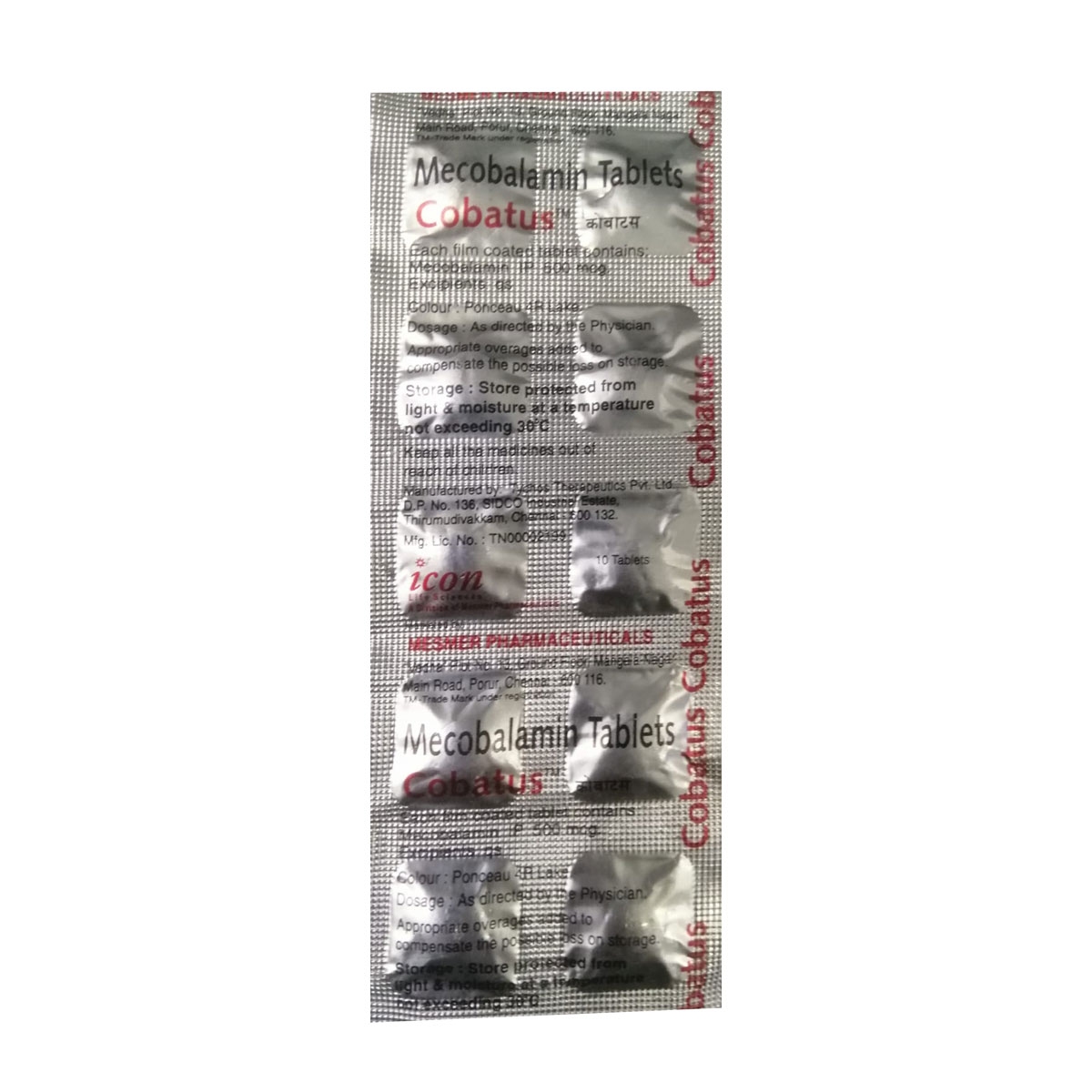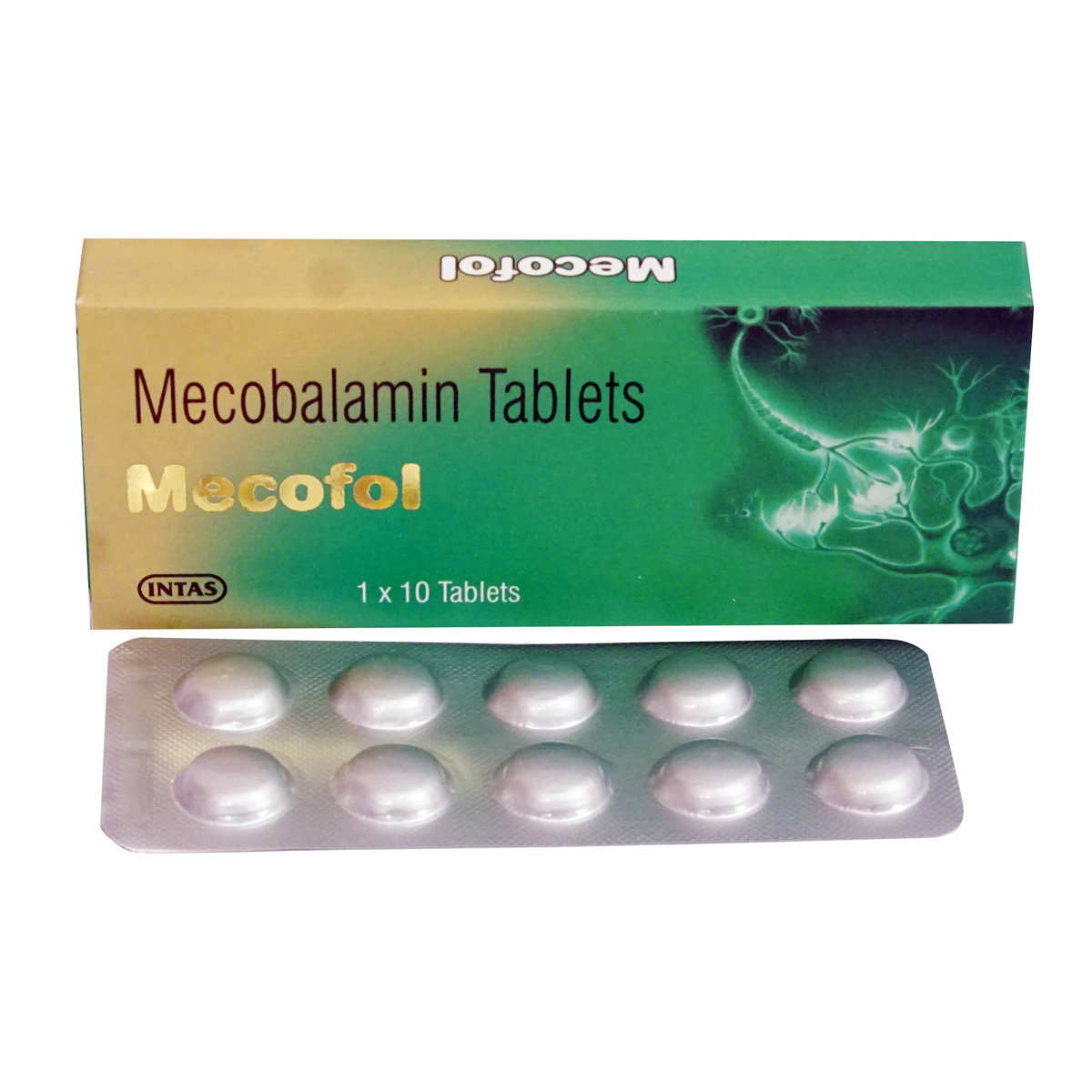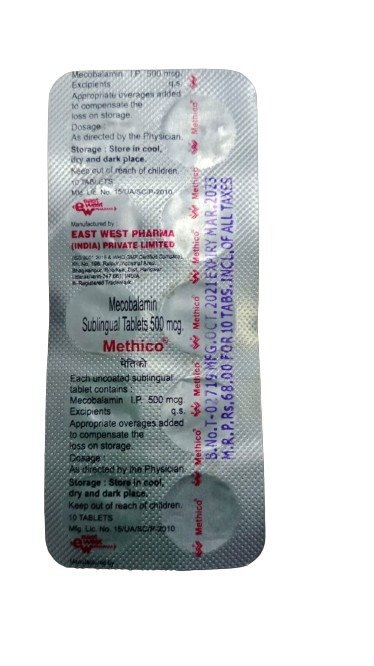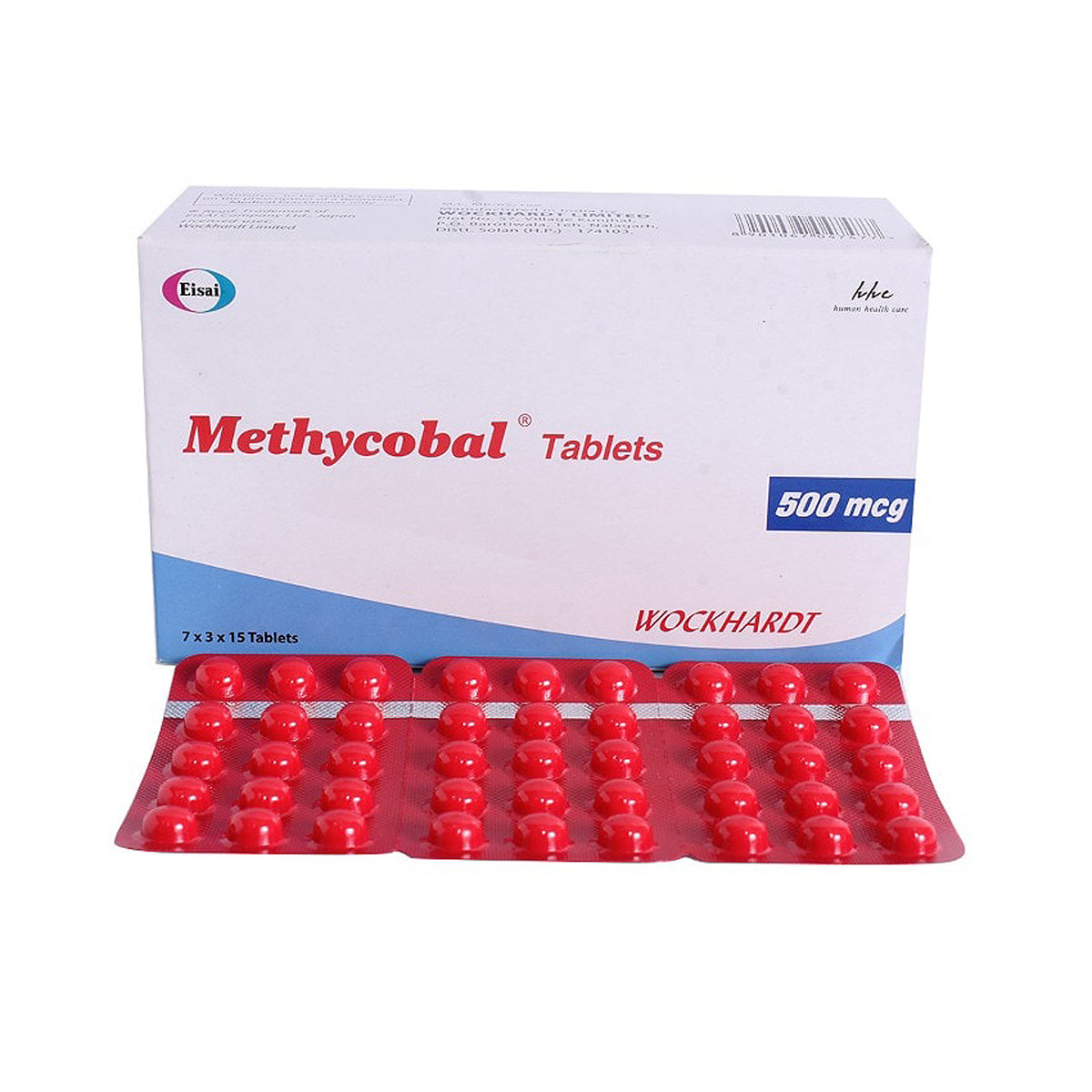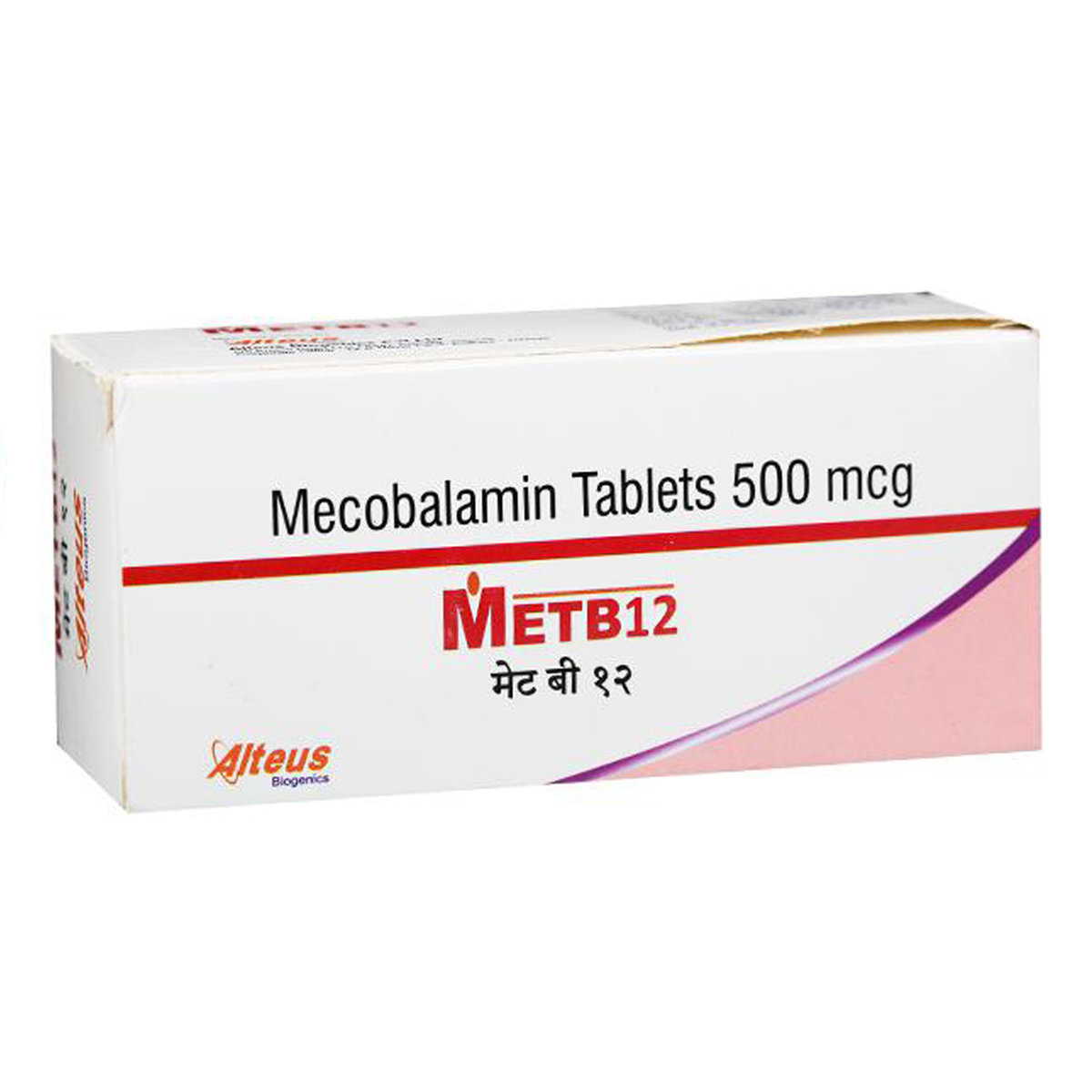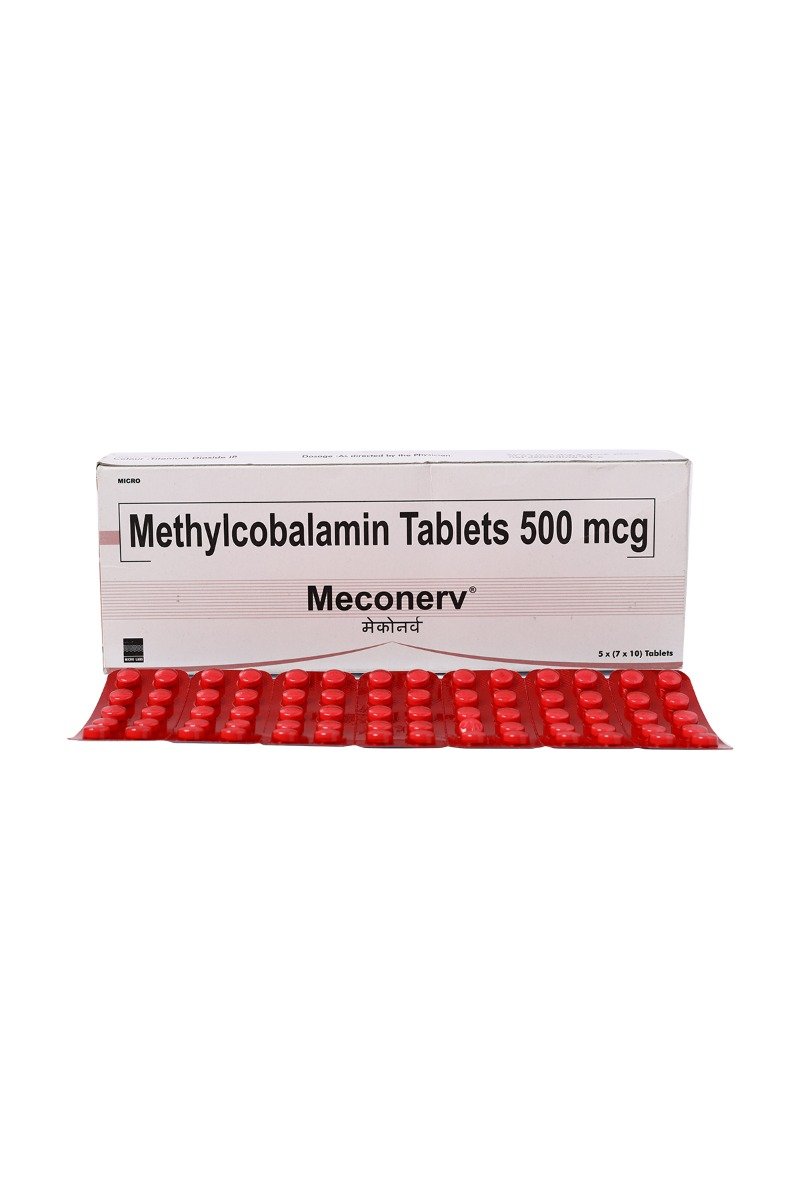XMV 500 mcg Tablet 10's
MRP ₹173.5
(Inclusive of all Taxes)
₹26.0 Cashback (15%)
Provide Delivery Location
Online payment accepted
 Prescription drug
Prescription drugWhats That
Composition :
Manufacturer/Marketer :
Consume Type :
Expires on or after :
Return Policy :
About XMV 500 mcg Tablet
XMV 500 mcg Tablet belongs to the class of 'vitamins', primarily used to treat vitamin b12 deficiency and peripheral neuropathy (nerve damage in the hands and feet). It is also used to prevent/treat megaloblastic anaemia (anaemia with unusually large red blood cells). Vitamin B12 deficiency occurs when the body has lower levels of vitamin B12 than normal. Symptoms include fatigue, breathlessness, numbness, poor balance, and memory trouble.
XMV 500 mcg Tablet contains Methylcobalamin, a form of vitamin B12 that regulates body functions, such as cell multiplication, blood formation, and protein synthesis. It also helps restore nucleic acid in the nerve cells.
Your doctor will decide the dosage based on your medical condition. Sometimes, XMV 500 mcg Tablet may cause common side effects like nausea, vomiting, diarrhoea, loss of appetite, and headache. These side effects do not require medical attention and gradually resolve over time. If these side effects are persistent, please reach out to your doctor.
Let your doctor know if you use any otrher medications, including other vitamins, before starting XMV 500 mcg Tablet . Please tell your doctor if you are allergic to any of the components in XMV 500 mcg Tablet . It is essential to let your doctor know if you are pregnant, planning to conceive or are a breastfeeding mother. Avoid consuming alcohol along with XMV 500 mcg Tablet to ensure maximum absorption of nutrients. XMV 500 mcg Tablet should be used in children only with the doctor's advice.
Uses of XMV 500 mcg Tablet
Directions for Use
Key Benefits
XMV 500 mcg Tablet contains Methylcobalamin, a form of Vitamin B12, which regulates body functions and helps rejuvenate and protect damaged nerve cells by producing a substance called myelin. It prevents nerve damage in peripheral neuropathy and treats symptoms of vitamin B12 deficiency. It promotes amino acid synthesis and plays an important role in protein formation. XMV 500 mcg Tablet also treats and prevents megaloblastic anemia, a vitamin deficiency anemia caused by low vitamin b12 levels.
Storage
Drug Warnings
Let your doctor know if you have any heart, liver or kidney diseases before starting XMV 500 mcg Tablet . XMV 500 mcg Tablet should be used during pregnancy only when advised by the doctor. XMV 500 mcg Tablet is excreted into breast milk. Hence, breastfeeding women should consult their doctor before taking XMV 500 mcg Tablet . Drinking alcohol may hinder vitamin absorption; therefore, it is advised to limit the alcohol intake while using XMV 500 mcg Tablet . XMV 500 mcg Tablet is safe for children only when recommended by the doctor.
Drug-Drug Interactions
Drug-Drug Interactions
Login/Sign Up
Coadministration of XMV 500 mcg Tablet with Chloramphenicol can impair absorption and increase the levels of XMV 500 mcg Tablet which can increase the risk or severity of side effects.
How to manage the interaction:
Taking XMV 500 mcg Tablet with Chloramphenicol together can possibly result in an interaction, it can be taken if your doctor has advised it. However, if you notice any symptoms of Vomiting, Diarrhoea, Nausea, Headache, or Loss of appetite, you should contact your doctor immediately. Do not stop using any medications without first talking to your doctor.
Coadministration of XMV 500 mcg Tablet with Neomycin can impair the absorption of XMV 500 mcg Tablet and increase its levels which can increase the risk or severity of side effects.
How to manage the interaction:
Taking XMV 500 mcg Tablet with Neomycin together is not recommended as it can possibly result in an interaction, it can be taken if your doctor has advised it. However, if you notice any symptoms of Vomiting, Diarrhoea, Nausea, Headache, or Loss of appetite you should contact your doctor immediately. Do not stop using any medications without first talking to your doctor.
Drug-Food Interactions
Drug-Food Interactions
Login/Sign Up
Diet & Lifestyle Advise
- Try Vitamin B complex food sources like milk, cheese, eggs, liver and kidney, chicken, red meat, tuna, mackerel, salmon, shellfish, oysters, clams, dark green vegetables such as spinach and kale, beets, avocados, potatoes, whole grains, cereals, kidney beans, black beans, and chickpea.
- Taking vegetables like acorn squash, asparagus, beet greens, Brussels sprouts, and spinach can help cope with Vitamin B deficiency.
- Limit foods with high cholesterol and saturated fats.
- Cut down on sugar, salt and processed foods.
- Drink plenty of water.
- Avoid smoking and alcohol consumption.
- Exercise regularly and maintain a healthy lifestyle. Avoid excess fatty foods.
Side Effects of XMV 500 mcg Tablet
- Nausea
- Vomiting
- Headache
- Loss of appetite
- Diarrhoea
Habit Forming
Therapeutic Class
All Substitutes & Brand Comparisons
RX
Out of StockMekopil 500mcg Tablet
₹49
(₹4.41 per unit)
71% CHEAPERRX
Meconeuron Tablet 15's
Pulse Pharmaceuticals
₹84
(₹5.04 per unit)
67% CHEAPERRX
Out of StockDIACOBAL 500MCG TABLET
Mano Pharma
₹56.1
(₹5.05 per unit)
67% CHEAPER
Author Details
We provide you with authentic, trustworthy and relevant information
Drug-Diseases Interactions
Drug-Diseases Interactions
Login/Sign Up
FAQs
Drug-Drug Interactions Checker List
- NEOMYCIN
- CHLORAMPHENICOL
- AMINOSALICYLIC ACID
- OMEPRAZOLE
- CIMETIDINE
- COLCHICINE
Special Advise
Disease/Condition Glossary
Vitamin B12 deficiency (cobalamin deficiency): Vitamin B12 deficiency occurs when the body has lower levels of vitamin B12 than normal. Symptoms include fatigue, breathlessness, numbness, poor balance and memory trouble. Pernicious anaemia, an autoimmune disease, is the most common cause of B12 deficiency. In this condition, the body cannot absorb enough vitamin B12 since the body's immune system produces antibodies against the intrinsic factor (a protein that helps the body absorb vitamin B12). Other causes include stomach or gut issues, where the body cannot absorb the vitamin, medications like antidiabetics and stomach-related drugs, and dietary restrictions like being a strict vegan.
Peripheral neuropathy/peripheral neuritis: It is defined as damage to nerves outside the brain and spinal cord. The pain could be intermittent or continuous, with a prickling, stabbing, tingling or burning sensation. A feeling of numbness and loss of sensations is also common with neuropathic pain. Symptoms include spontaneous, un-triggered pain, unpleasant feeling, shooting, burning or stabbing pain, muscle weakness, and cramping.

Have a query?
Alcohol
Safe if prescribed
Avoid consuming alcohol with XMV 500 mcg Tablet to ensure maximum absorption of nutrients.
Pregnancy
Consult your doctor
XMV 500 mcg Tablet should be used during pregnancy only when advised by your doctor. Let your doctor know if you are pregnant or planning to conceive before starting XMV 500 mcg Tablet .
Breast Feeding
Consult your doctor
XMV 500 mcg Tablet may be excreted into breast milk. Please consult your doctor before taking the supplement if you are a breastfeeding mother.
Driving
Safe if prescribed
XMV 500 mcg Tablet usually does not interfere with your driving ability
Liver
Consult your doctor
Let your doctor know if you have any history of liver diseases before taking XMV 500 mcg Tablet . Your dosage may be adjusted in case of liver impairment.
Kidney
Consult your doctor
Let your doctor know if you have any history of kidney diseases before taking XMV 500 mcg Tablet . Your dosage may be adjusted in case of renal impairment.
Children
Safe if prescribed
XMV 500 mcg Tablet should be used in children only when the doctor advises. The doctor will recommend the dosage of XMV 500 mcg Tablet based on the child's age and weight.





